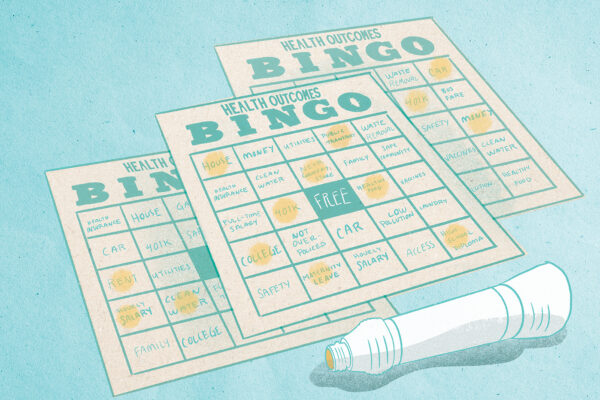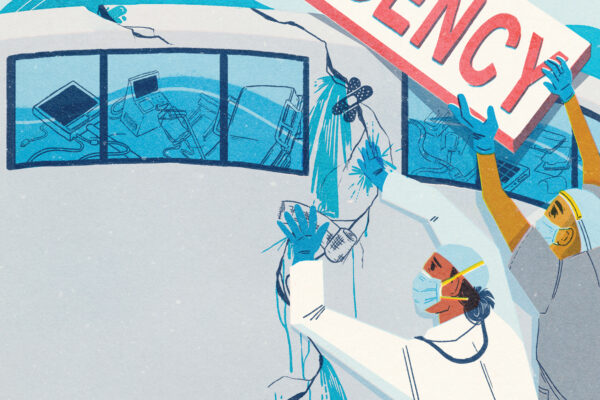It has been a busy pandemic for Leana Wen, MD ’07. Congress asked her to testify about racial disparities with COVID-19 and how to overcome them. National media outlets requested her virtually every day to help explain COVID-19 and how to avoid contagion. Oh, and at the height of the surge in April 2020, she had a baby.
Wen found her public health focus in med school at WashU — by learning the limitations of medicine. One boy showed up in the emergency department again and again, asthma stealing air from his lungs. He and his mother were staying in a moldy rowhouse with people who chain-smoked. Realizing that health hinged on factors outside hospitals, Wen went to Oxford University as a Rhodes Scholar and studied health policy.
Also an emergency physician, Wen is currently a visiting professor of health policy and management at the George Washington University’s Milken Institute School of Public Health. She wrote a book titled When Doctors Don’t Listen, and she is a contributing columnist for The Washington Post and a medical analyst for CNN. As Baltimore’s health commissioner through two mayors, she learned firsthand the many ways public health and politics intersect — but nothing prepared her for a pandemic in which political officials and scientists flat out contradicted each other.
In fall 2020, Wen shared a few thoughts:
“With conflicting messages between our elected officials and public health experts, people don’t know who to believe. Those of us who are educating our patients and the community are put in the position of fact-checking — and people still don’t know who to trust.”
“I think about my patients who have lost loved ones. My patients who have died. My patients who are trying so hard to do the right thing and the sacrifices they are making that may be in vain.”
“To reduce racial disparities? Target testing to minority communities. Track demographics to make sure resources are fairly allocated. Hire contract tracers who represent the communities they serve. Provide free facilities for isolation and quarantine. Increase health insurance coverage. Strengthen worker protections. Certain locales are doing this important work, but we really need coordination from our federal government.”
“I never would have imagined us as a country knowing what needed to be done but choosing not to do it. The previous strategy seemed to be one of surrender. We are the most technologically advanced country in the world, and to see that we’re leading the world in infections and deaths is a travesty.”
“I’m not naïve enough to think that politics and public health can exist in isolation from one another. As health commissioner for Baltimore, I reported to the mayor; I know decisions made on the executive level have to take many factors into account. It’s understandable that public health and politics are intertwined. But it is a major problem when public health somehow becomes labeled the enemy of the economy. When scientific decisions around vaccine approval get tied to election deadlines. When something as basic as mask wearing ends up a partisan symbol. When decisions are based on political calculations rather than scientific integrity.”



